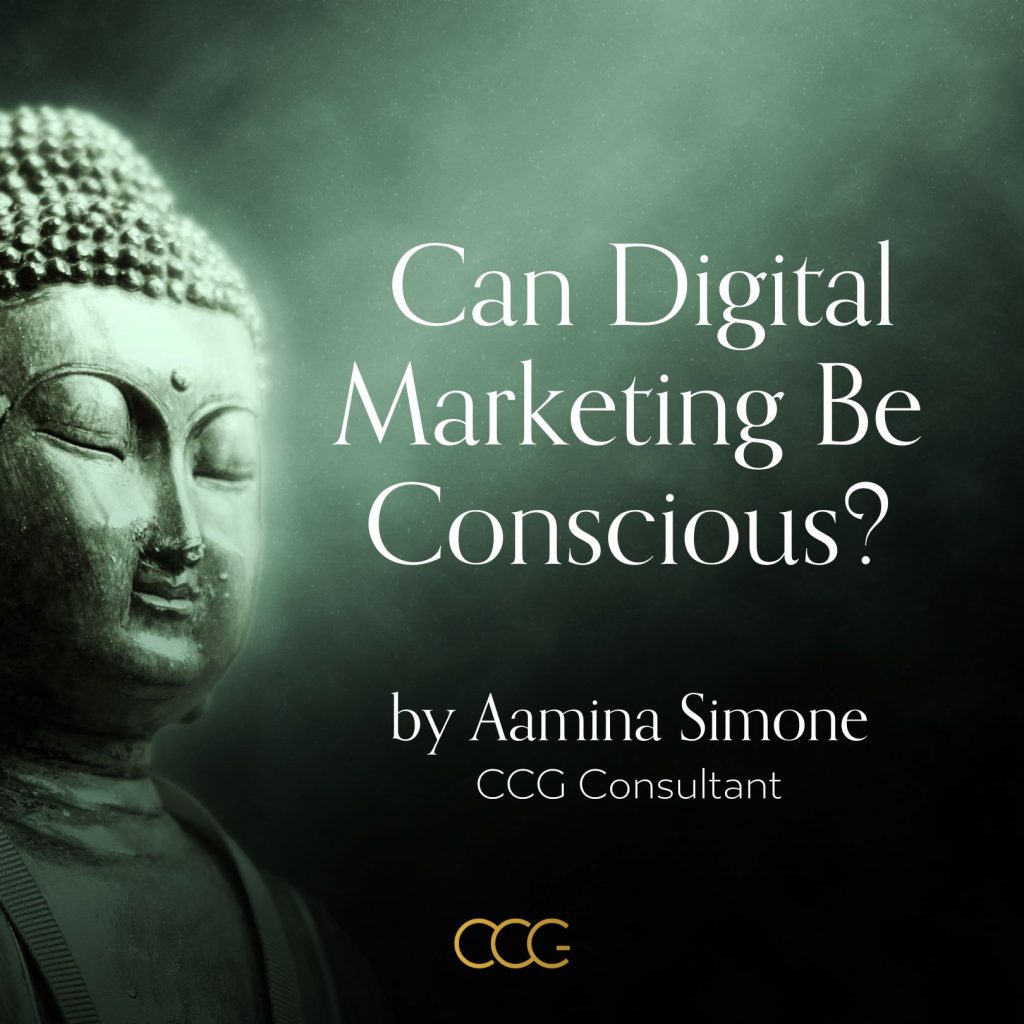
We’re all aware by now of the application of persuasive design practices used by brands and businesses to coerce us into buying things we don’t need, but are we aware of its global impact on our future?
To shine a light on the level of sinister practices being deployed, the book ‘Evil by Design’ illustrates this rather explicitly; Using the framework of ‘the seven deadly sins,’ the book breaks down how persuasive design tactics manipulate human psychological weaknesses to trigger an impulsive reaction. The outcome of this reaction provides a direct monetary benefit to the brands and businesses using these techniques. Here’s a summary of how:
The techniques are extractive and reductionist to the human psyche; They do not honour the complexity and uniqueness of our existence, and therefore free will. By eliciting behaviour that isn’t consistent with our own self-interest, we are left feeling a sense of loss of autonomy. To capitalise off of intrinsic human tendencies and behaviour raises a serious question about the ethicality of persuasive design, nudge economics and other corrupt digital systems and practices.
“Whoever controls the media—the images—controls the culture.”
Allen Ginsberg
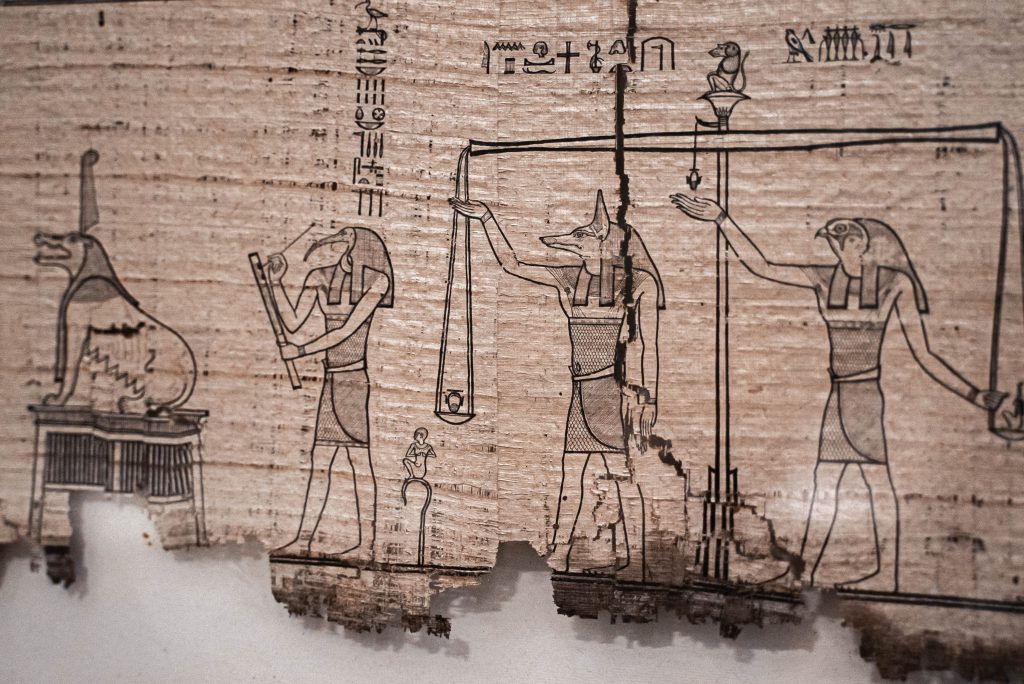
It’s no wonder that the present state of AI intimidates us, as evidenced by the petition to pause AI development signed by Steve Wozniak, Elon Musk, etc. We are the creators of technology, and thus AI is a mirror of our present society; It’s this very reflection of manipulation, extraction and destruction that scares us.
“Inner space is the real frontier.”
- Gloria Steinem

As part of The Society for Consciousness Studies’ 2021 Conference, Marcus T Anthony, PhD presented his research on ‘Embodiment, Classical Intuition and The Future of the Metaverse.’ As a Researcher in Critical Futures Studies, Anthony proposed two possible scenarios; ‘Money & Machines Futures’ and ‘Deep Futures’:
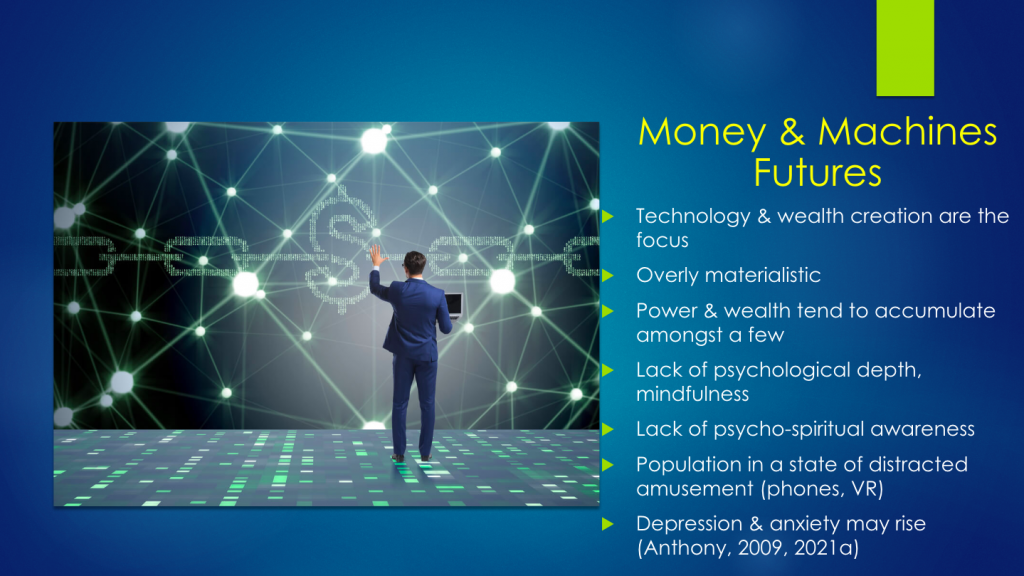
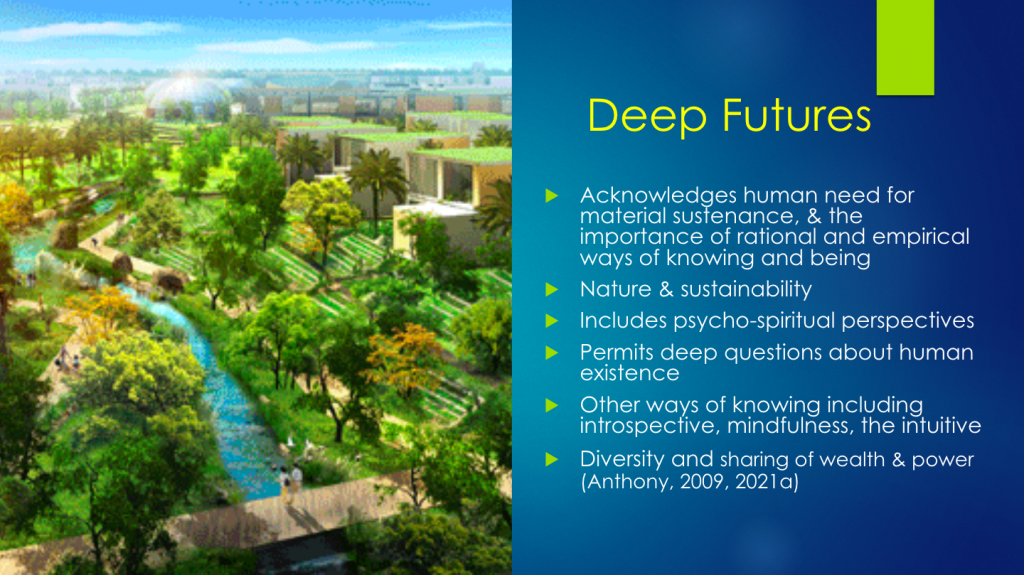
It’s unsurprising to assess that our present society stands as a prelude to a ‘Money & Machines’ future, yet that doesn’t make it any less terrifying. With capital central to our current existence, any form of value outside of financial wealth creation, such as environmental welfare and spiritual awareness, is entirely dismissed.
Mental Illness – a desired outcome?
Author of ‘Capital Realism’, Mark Fisher states that “Considering mental illness an individual chemico-biological problem has enormous benefits for capitalism. First, it reinforces Capital’s drive towards atomistic individualisation (you are sick because of your brain chemistry). Second, it provides an enormously lucrative market in which multinational pharmaceutical companies can peddle their pharmaceuticals (we can cure you with our SSRIs,)” therefore burdening individuals with high costs for medical care, yet privatising the revenues.
The flawed use of “Mindfulness” and “Conscious” in Marketing
Even marketing strategies have now co-opted terms such as “mindfulness” and “conscious” to their campaigns as sugar-coated insidious ways to still feed us the same dopamine-inducing and profit-maximising propaganda, yet in this context, these terms stand for pseudo-spiritual values and are misnomers in reality. (In the same way that “sustainability” has lost all meaning after being milked by greenwashing brands and businesses.) “It goes without saying that mental illnesses are neurologically instantiated, but this says nothing about their causation,” says Fisher, and the rising numbers, especially amongst the youth, may well be “a consequence of being wired into the entertainment-control circuits of hypermediated consumer culture.”
Losing connection with our physical bodies
Anthony’s research suggests that our addiction to being overly mentally stimulated is causing a loss of connection with our somatic body. As the somatic body is a vessel for both emotion and intuition, the increasing state of disembodiment fostered by current digital practices leads to a disconnection from our emotional and intuitive wisdom.
The crisis in sensemaking; confusion and the rise of disinformation
Furthermore, there is widespread metaphysical confusion around what is real and true; The current ‘Crisis in Sensemaking,’ as Anthony claims, is due to distrust in governments, media and institutions. With the rapidity of disinformation and the rise of memes, now deeply embedded in our culture, “It’s becoming evermore difficult to make sense of the world & what it means to be human.”
In an age of ‘Computational Warfare’ where “information systems are misused and exploited for power, control and profit” Anthony’s research emphasises the need to return to the Authentic Self.
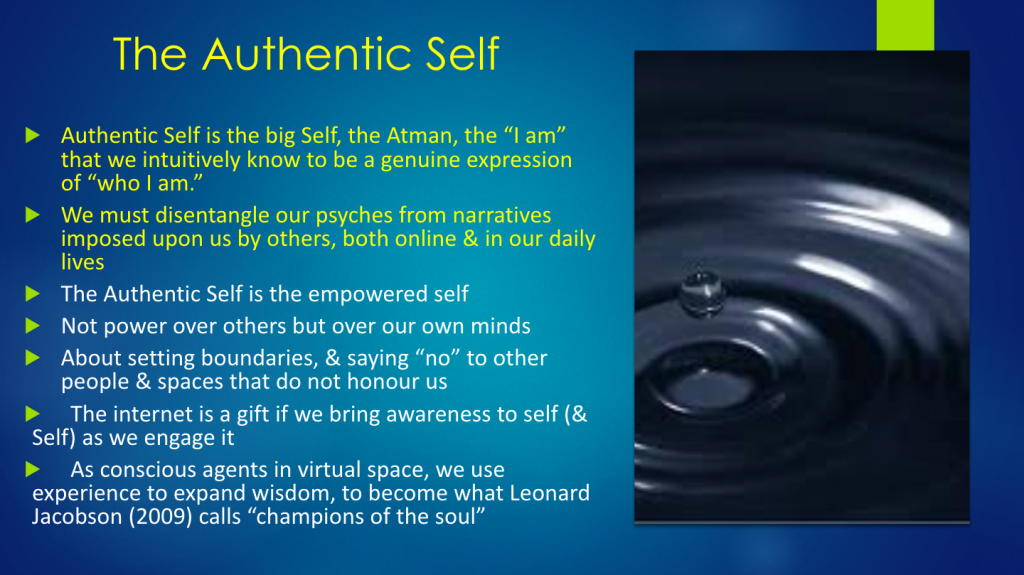
Anthony claims the Authentic Self is what we intuitively know to be the *highest* expression of ourselves, and becoming lost in digital distractions or falling prey to agendas take us away from that state of being. He further claims that living life via our Authentic Self is fundamental to self-empowerment; Where we can focus our power within, rather than externalities.
The Self: Our Essence (not our Ego)
In Anthony’s view, the Authentic Self is the Ātman, a Sanskrit term to describe the soul, or Awareness itself, pure consciousness, or the Self. Frawley & Feuerstein’s definition of Ātman is the “higher Self, that dwells in the hearts of all beings,” it is “our innermost essence, just as it is the deepest foundation of the cosmos.” With this understanding of the Ātman we can begin to comprehend our inextricable role within the conscious energy field of the universe, as it “organises into forms and phenomena, spanning the entire range from galaxies to subatomic particles,” and as Chopra writes, “Somewhere in between are human beings, with their physical, emotional, psychological, and spiritual layers.”
“It is the preoccupation with possessions, more than anything else, that prevents us from living freely and nobly.”
Bertrand Russell

Author of ‘Citizens’, Jon Alexander, who worked in advertising for over a decade, writes “Doing a good job meant selling more stuff, yet ever-increasing consumption was obviously unsustainable. For a while I accepted the lullaby of ‘conscious consumption,’ and did my best to sell greener stuff: Eurostar instead of flying, fair-trade chocolate, and so on. This even, briefly, made my choice of career feel good again: where better to work than in advertising, if what we needed to do was modify the nature of consumption? But my relief was fleeting, not least because for every pound spent promoting the ethical or environmental alternative, even just within the walls of the agency I was working at, another 5 or 10 or even 20 were at the same time pushing the opposite.” This is the myth of ‘conscious consumption’, in truth there is nothing conscious about it.
The underlying need for rigorous consumption in itself is fundamental to capitalist ideals, where exponential extraction (of resources) is leveraged for profits, and hence we need to move beyond this, into something deeper in order to create a ‘Deep Future.’
“The relationship between capitalism and eco-disaster is neither coincidental nor accidental: capital’s ‘need of a constantly expanding market’, its ‘growth fetish’, mean that capitalism is by its very nature opposed to any notion of sustainability.”
Mark Fisher

Alexander states that we live “deep inside the Consumer Story, a foundational story of humans as inherently self-interested and competitive. This story has shaped not just individual behaviour but organisational design, economic theory, the role of government, morality— all of culture and society.” “Because ‘the Consumer is King,’ we believe that we are in charge. The glittering array of available choices makes us forget that there might be possibilities beyond the menu, or damage inherent in the very dynamic of our choice between them.”
Seeing people as Conscious Agents
Alexander proposes “When our institutions see people as citizens rather than consumers, and treat us as such, everything changes.” In seeing people as conscious agents having meaningful experiences, as opposed to mere data points on an excel sheet, we can shift the story, “this is not as inevitable and inescapable as it feels, for stories do change.”
The Golden Age of the Consumer Story is collapsing
There’s no denying the opportunity and livelihood the ‘Consumer Story’ has provided for generations of humans, and thus it’s important to acknowledge it “not just in contrast to what is possible now, but in the context from which it had arisen.” Alexander claims the ‘Consumer Story’ was born out of the need to liberate ourselves from the ‘Subject Story’ (as in, ‘subjects of the king,’) where our role (as subjects,) was “to be ruled over and kept safe by the hopefully benevolent Great Man in charge, the one ordained by right of birth and by god.” With this new light, the emergence of the ‘Consumer Story’ can be seen “less as some sort of evil conspiracy,” as indeed, it held “its own promise of a new golden age,” which has been far outlived, and so we must also acknowledge that it has “served its purpose, and now must be superseded.”
According to Alexander, the ‘Consumer Story’ is already collapsing “under the weight of its own contradictions, and the Citizen Story is emerging” as growing numbers of people are “dissatisfied with being mere Consumers,” and “yearn for deeper agency.” Much like Anthony’s research, Alexander emphasises that “authentic participation holds the key to a brighter future.”
Above all, the most powerful insight from ’Citizens’ is that “this shift in story is already happening. It is not something that needs to be created or insisted upon or campaigned for; rather, it is something that needs to be named, nurtured and accelerated.”
“Change is the only constant in life.”
Heraclitus

From Pressure | To Purpose |
Result-driven | Impact-driven |
Forced, simulated, unreliable | Natural, organic, authentic |
Builds pressure from a scarcity mindset, insecurity; promotes competition and individual accumulation, survival of the fittest. | The search for purpose and meaning stems from a desire for that which is eternal, deep, stable, reliable and therefore abundant. A shared purpose creates a natural pull by which a community and network actors will be motivated to participate in and contribute towards. |
“Every great movement must experience three stages: ridicule, discussion, adoption.”
John Stuart Mill

From Controlling Actions | To Creating Beneficial Conditions |
A/B testing | Clear intention |
Mediated by algorithms | Ernest messaging |
Linear thinking | Quantum thinking, multidimensional |
Content-driven, direct input-output relations, manipulation, psychological triggers, content “hooks”. | Creativity-led, creating conditions or context that allow for trust, creativity and energetic action. |
Humans treated as binary data points to problem-solve (human-centred design). | Taking inspiration from natural ecosystems to facilitate complex interconnected relationships that constantly change their state by domino effect (heart-centred design*). |
*Human-centred design only focuses on humans, we aren’t the only living stakeholders on this planet. Heart-centred design acknowledges the universal heart in all living beings and the interconnectedness of each being’s unique experience.
The vocation, whether it be that of the farmer or the architect, is a function; the exercise of this function as regards the man himself is the most indispensable means of spiritual development, and as regards his relation to society the measure of his worth
Ananda K. Coomaraswamy

How can brands and businesses enable and support us to experience ourselves as an inextricable part of the biosphere, and as such, empowered, capable and responsible in a much deeper way?
Can we take responsibility to create the world we want to live in? Can we be brave enough to challenge the status quo and not heedlessly follow protocols simply because we don’t know any other way?
Are we willing to get creative? What would the world look like if we created from our hearts?
About the Author
Aamina Simone is a CCG Consultant based in New Delhi, India. Although her research into consciousness began as a personal existential-inquiry, it has now evolved into a service for collective expansion. With a deep-rooted interest in art and expressionism, Aamina has a multi-disciplinarian approach to business and strategy. More information and contact details here

Let’s work together! Please see our current workshop formats below. Of course we are happy to create the best tailor-made offering for you.
A free 20min call to talk about anything you’d like; address any immediate concerns or challenges regarding your business/ strategy, springboard ideas for clarity in decision-making, discuss or understand more about other offerings, etc
A 90min Workshop, to assess your current digital marketing strategy. Purpose is to provide foresight into the future scenario your brand is contributing towards, therefore enabling you to consciously re-strategise your business.
A 3-part Workshop (90min session each). Includes Scenario Plotting. Purpose is to evaluate your current brand strategy, content, vision and industry. Takeaway insights for potential areas of opportunity. Future modeling to identify ways to transform your strategy and make immediate decisions for future planning.
Alexander, J. (2022) Citizens: Why the key to fixing everything is all of us. Kingston upon Thames, Surrey: Canbury Press.
Anthony, M. T. (2021) Embodiment, Classical Intuition and the Future of the Metaverse. The Society for Consciousness Studies. Available at: https://www.youtube.com/watch?v=3xfNLsxvyB4
Culen, J. (2020) From Ego To Eco-System: Leading In A New Paradigm. Conscious Consulting Group. Accessed at: https://ccg-group.eu/2020/06/from-ego-to-eco-system-leading-in-a-new-paradigm/
Feuerstein, G. (2022) The Encyclopedia of Yoga and Tantra. Boulder, Colorado: Shambhala Publications.
Fisher, M. (2009) Capitalist Realism: Is there no alternative? Ropley, Hants: John Hunt Publishing Ltd.
Frawley, D. (1999) Yoga and Ayurveda, Self-Healing and Self-Realization. Twin Lakes, Wisconsin: Lotus Press.
Haidt, J., & Twenge, J. (ongoing). Social media and mental health: A collaborative review. Unpublished manuscript, New York University. Accessed at tinyurl.com/SocialMediaMentalHealthReview
Nodder, C. (2013) Evil by Design: Interaction design to lead us into temptation. Indianapolis, Indiana: John Wiley & Sons, Inc.
Simon, D. and Chopra, D. (2000) The Chopra Center Herbal Handbook: Natural Prescriptions for Perfect Health. New York, New York: Three Rivers Press.